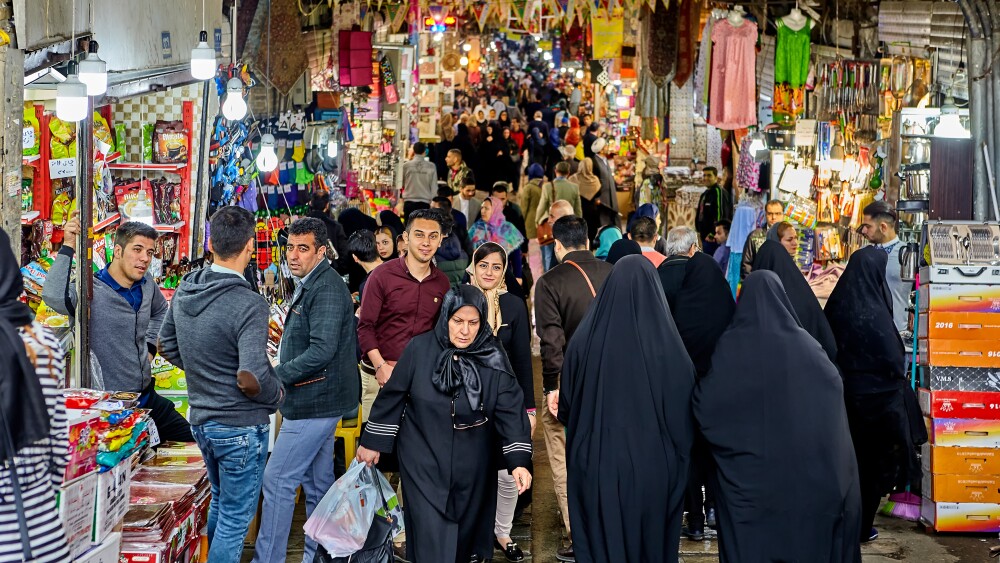There was always something fishy about the Mojahedin-e Khalq Organization. While the group’s English-speaking interlocutors describe it as popular and influential, the organization raises a number of red flags: It operates like a cult, isolating its members from the outside world. Its finances are opaque; it can pay millions and perhaps even tens of millions of dollars annually in honoraria, first-class airfare, and luxury hotels for retired American and European officials willing to endorse it, but its tax returns show no indication of the origin of its money.
Among Iranians inside Iran, support for the Mojahedin-e Khalq is negligible for three reasons: First, Iranians struggling to throw off the yoke of clerical dictatorship resent that the group supported Ayatollah Ruhollah Khomeini’s Islamic Revolution. Second, Iranians are patriotic; the Mojahedin is not. The group’s leaders and its rank-and-file value power over country, which is why they embraced Iraqi dictator Saddam Hussein during the Iran-Iraq War. Lastly, as ordinary Iranians put their life on the line to free themselves from mandatory covering, the group’s leader Maryam Rajavi still wears a tight head-covering herself.
Privately, many American policymakers who engage the group acknowledge they do it for the money, but bear no special fealty to the Mojahedin. When regime change comes to Iran, they say, either the Mojahedin-e Khalq will prove its claims or they will not; either way, American officials will follow Iranians’ lead, not some exiled group. The less cynical, however, point to the group’s intelligence revelations as evidence they infiltrate Iran.
The group’s claims often turn out to be demonstrably false.
While it’s true the Mojahedin or its various front groups, like the National Council of Resistance of Iran, have been the first to reveal certain nuclear sites publicly to news organizations like CNN, Mojahedin declarations that these prove Mojahedin-e Khalq claims about its power and influence are false for a simple reason: The group’s claims often turn out to be demonstrably false. In 2000, for example, the group provided a defector to CBS’ “60 Minutes,” whom the Mojahedin identified as Ahmad Behbahani, the Iranian regime’s counterterror chief. The problem was that the man whom they “revealed” as Behbahani was the wrong height. Either the Mojahedin was purposely lying or it did not know. Either way, had anyone accepted his falsehoods, not only would it have interfered with ongoing counterterrorism investigations such as one on the Pan Am 103 Lockerbie bombing, but it would have empowered the Islamic Republic by casting doubt on real episodes of its terror sponsorship.
The group also lied with a release suggesting a radiation leak at Isfahan in 2012, and repackaged earlier public reports about Iranian involvement in Syria as fresh intelligence. Again, the Mojahedin-e Khalq has never explained why it might get such high-profile episodes wrong. After all, while the Central Intelligence Agency might err when it draws conclusions from disparate points about an opaque society, the Mojahedin-e Khalq claims to source its information to moles it infiltrated who are in the know.
A far better explanation for the inconsistency surrounding Mojahedin-e Khalq revelations is that the group has always been a cut-out. Israeli and Saudi intelligence could, in theory, use the group to launder intelligence and remove the fingerprints of its original source. In hindsight, this appears more likely given how the 12-day war between Israel and Iran exposed just how deeply Israeli intelligence had penetrated the Islamic Republic over decades.
Whereas once Israel sought to remove its fingerprints from operations in Iran—it could not trust CNN or the New York Times not to go chattering back to their regime contacts in Tehran—the open warfare between Jerusalem and Tehran means that Israeli officials no longer need to pretend nor fear that exposure of their penetration could spark open war.
In some ways, the Mojahedin-e Khalq now follows the path hewn by various front groups like the Christian Peace Conference, a Soviet front group founded during the Cold War. When the Soviet Union collapsed, the Christian Peace Conference faded away.
With Jerusalem more prone to trumpet its own successes, it is understandable why the Mojahedin-e Khalq leaders are flailing about with ever greater claims.
With the Mojahedin-e Khalq no longer serving any purpose for foreign intelligence services, the question is whether the Mojahedin-e Khalq will follow the same trajectory into oblivion. At best, the Mojahedin-e Khalq may end up like the Polisario Front, an Algerian and Cuban creation whose leaders now wither away into irrelevance in refugee camps in Tindouf, Algeria. With Jerusalem more prone to trumpet its own successes, it is understandable why the Mojahedin-e Khalq leaders are flailing about with ever greater claims.
The real question, however, is no longer the Mojahedin-e Khalq’s relevance; the group’s irrelevance is plain to see. Rather, it is whether all those who accepted Mojahedin-e Khalq cash understood they were part of an elaborate and likely foreign information operation and whether they will pay any consequences for their greed.







